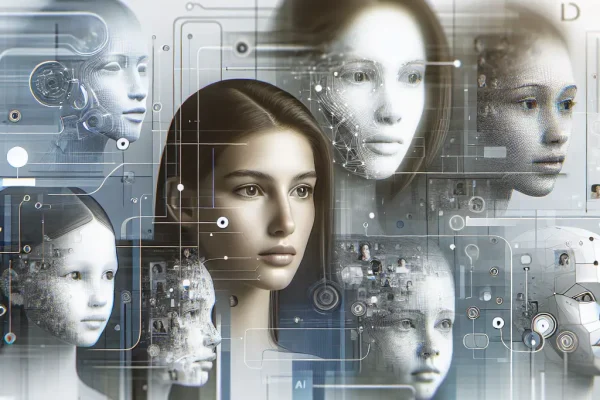Imagine an iPhone that not only answers your questions but predicts your needs, organizes your life, and fiercely defends your privacy—all thanks to artificial intelligence built directly into iOS 19. At Apple’s WWDC 2025, this leap became reality. As Apple unveils AI-powered iOS 19 features, tech insiders are stunned—not just by the possibilities, but by the huge privacy bet Apple is making as it dances into AI’s high-stakes arms race. Could your next update make your phone smarter—and more trusted—than any device before?
More than cosmetic upgrades, iOS 19 introduces a sweeping, AI-driven transformation. Apple’s on-device AI approach promises context-aware experiences rivaling Google and Samsung—while putting unprecedented privacy at the forefront. With 1.2 billion iPhones worldwide, the stakes for Apple’s bold AI vision couldn’t be higher. Here’s everything you need to know about this paradigm shift and what it means for the future of smartphones, trust, and your data.
The Problem—And Apple’s Radical Solution
The AI Privacy Dilemma in Smartphones
Until now, AI on phones typically meant cloud-powered voice assistants and predictive text. But every new convenience came at a cost—sensitive data traveling beyond your control. Frequent headlines about data leaks and “surveillance capitalism” have left users wary. As Financial Times reports, surveys showed 68% of consumers worried about how smartphone AI accessed their private data.
Enter iOS 19’s AI Revolution
Apple’s answer? Outflank competitors by deploying advanced AI only on device. The company claims its new architecture enables real-time language processing, photo enhancement, and context-aware assistance—without user data ever leaving your iPhone (“Apple AI features explained,” TechCrunch).
- Smart Compose & Auto-Organize: AI now analyzes messages, emails, and notes in real time, suggesting relevant replies or categorizing info instantly.
- Vision Intelligence: Photos app recognizes people, places, and events with much higher accuracy—and no cloud upload required.
- On-Device Voice Assistant: Siri’s brain transplant puts multi-turn conversation and quick commands completely on your device.
- Security Monitoring: iOS 19 watches for phishing, scams, or malicious content and flags it proactively, again using on-device processing.
Why Does This Matter Now?
The integration of on-device AI in iOS 19 arrives at a pivotal moment: global trust in technology is at an all-time low, yet dependency is at record highs. AI’s rapid entry into everyday life brings benefits—and new risks. In the workplace, algorithms are replacing routine tasks; in health, AI can spot issues a doctor might miss—but users fear surveillance, manipulation, or unintended bias.
Much more than a technical upgrade, iOS 19 represents a shift in who controls your most personal data. By embedding AI in your phone, Apple could tip the balance of power away from corporations and back toward individuals—if its promises of privacy hold up.
Expert Insights & Data: Apple AI Features Explained
What sets Apple’s AI push apart is relentless attention to privacy, speed, and native integration throughout iOS 19. Here’s how it works—and why it matters internationally.
How Does Apple Integrate AI into iOS 19?
According to MIT Technology Review, iOS 19 uses a Secure Enclave co-processor optimized for AI workloads. Apple’s custom chips allow the iPhone to run advanced language models and neural engines locally. Actions—like summarizing emails, tagging photos, or translating text—happen instantly, with no cloud round-trip.
“Apple is banking on user trust by isolating powerful AI tools within the iPhone itself—a technical feat few rivals can match.” —MIT Technology Review, June 2025
Wired offers an inside look at how Apple employs differential privacy and federated learning, ensuring the system learns from device trends at scale, without ever exposing individual user data (“What are Apple’s new privacy protections with AI?” Wired).
- Chat Summaries: AI reads chat threads, summarizes key points, and flags actionable follow-up items. Privacy: Analysis stays on-device.
- Smart Photos: Search “sunset, Paris, 2023” and only your phone processes the query.
- Health Insights: The Health app predicts sleep and activity patterns without uploading data to Apple servers.
Stat: Apple claims iOS 19 processes 96% of user data queries on-device—a 7x reduction in data sent to the cloud (TechCrunch).
iOS 19 vs Android AI Comparison
How does Apple’s privacy-centric approach stack up against Android, which has taken a cloud-first stance? While Google’s Gemini AI offers impressive generative features, user prompts and queries are routinely sent to external servers. Apple’s on-device limitation means lower exposure to potential breaches and greater speed for routine tasks. However, some experts warn it may initially lag behind rivals in high-complexity or large-model AI tasks.
Infographic/Chart Idea:
- Title: “iOS 19 vs. Android: AI Data Flow and Privacy Risks”
- Styles: Side-by-side diagram showing on-device-only arrows for Apple, cloud-mediated arrows for Android, with annotated data risk points.
The Long-Term Impact of AI on iPhones—and Beyond
Looking 1–5 years ahead, the innovations in iOS 19 may ripple far beyond Apple’s ecosystem.
Predictions, Risks, and Opportunities
- Tech Arms Race: Apple could force competitors (Google, Samsung) to invest in similar on-device AI, raising the privacy bar for everyone.
- User Expectation Shift: Consumers may demand local processing in smart home devices, PCs, even vehicles.
- Economic Impact: Start-ups may pivot to privacy-first AI, birthing a new category of apps (as major data brokers face disruption).
- Policy and Regulation: The EU and US might reward Apple’s approach by easing compliance hurdles or favoring local-processing tech in regulation.
- Risks: Some features, like deep personalization or advanced generative AI, could be limited by hardware constraints compared to cloud-powered alternatives.
“Apple’s bet isn’t just technical—it’s philosophical: control of data stays with users, not cloud giants. That simple shift could have global consequences.”—Financial Times
Case Study: iOS 19 vs Android AI Comparison—Table
| Feature | iOS 19 (Apple AI-Powered) | Android 15 (Google Gemini AI) |
|---|---|---|
| Voice Assistant | 100% on-device processing (Siri), retains local context | Hybrid cloud/on-device (Gemini), context stored on Google servers |
| Photo Recognition | Fully on-device, no uploads needed | Cloud-based for advanced recognition/search |
| Privacy Protections | Federated learning, privacy vault, no server access to raw data | Data sent to cloud, opt-out required for full privacy |
| Performance | Instant, low-latency for supported AI features | Potential latency, network dependent |
| AI Limitations | Complexity bound by device hardware | Access to cloud’s full compute power |
Apple WWDC 2025 Major Takeaways
WWDC 2025 will be remembered as the event where Apple staked its future on privacy-first, on-device AI. With iOS 19, Apple is not just catching up in the AI race—it is reshaping the rules. If consumers respond positively, expect to see similar moves across the tech landscape, from laptops to smart home hubs and wearables (TechCrunch).
Related Links
- [MIT Technology Review: Apple and AI]
- [NASA: Artificial Intelligence Missions]
- [WSJ: Apple AI & Privacy Future]
FAQ: iOS 19 Artificial Intelligence Tools & Privacy
How does Apple integrate AI into iOS 19?
Apple uses custom chips to handle machine learning and natural language processing directly on the iPhone, ensuring tasks like summarizing texts or organizing photos happen in real time, privately, and without cloud dependency. (Source: TechCrunch)
What are Apple’s new privacy protections with AI?
Apple shields user data through techniques like federated learning, differential privacy, and encrypted on-device processing. This means your private information, such as health or messages, never leaves your phone. (Source: Financial Times)
Will Apple AI affect user data privacy?
iOS 19 is designed to strengthen, not weaken, iPhone privacy. However, some AI features may be slightly less powerful than cloud-based services from competitors, due to the strict limitations on data movement. (Source: Wired)
How does iOS 19 compare to Android’s AI approach?
Apple’s AI mainly happens on-device for privacy, while Android’s Gemini uses cloud-based AI, which can process more complex tasks but introduces more privacy risks. (See comparison table above.)
What’s the long-term impact of AI on iPhones?
Apple’s approach may become the new standard for AI privacy, pushing the entire industry toward on-device solutions and shifting regulatory and consumer expectations worldwide.
Conclusion
Apple’s bold AI overhaul in iOS 19 signals more than a new set of features—it’s a radical challenge to how technology, privacy, and trust intersect. The real test will be not what AI can do, but what it should do: empower users without ever compromising their agency. As AI moves under your thumb instead of over your shoulder, will iPhones become the most trusted digital companions?


